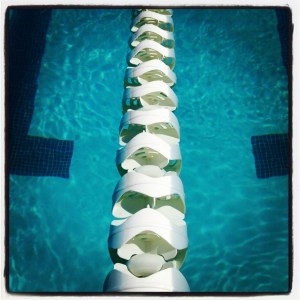Today, I came across this article by Naomi Simson, founder of RedBalloon. I think it fits in perfectly with what I have been writing about in my last two posts. I hope that you will enjoy it and join me in putting it into practice.
The Key To Success Is Practice
by Naomi Simson
How fortunate I am to have met Dandapani (pictured) on several occasions and to have listened – and embraced what he shares about energy.
I am asked regularly – “tell me the ‘one’ thing that made you successful?” And most do not find my answer uplifting, which is simply “hard work and persistence.”
I pose the question – “Is living a good life the same as a happy life?” The relentless pursuit of happiness is in itself more likely to cause unhappiness.
Does success mean to live every day in happiness… or is success to live a good life? A life full of many human emotions that we experience – not just happiness — does that equate to a successful life?
I found Dandapani’s work insightful and uplifting as part of my relentless quest for understanding the ‘experience of happiness’ and well-being.
As a child my parents would say to me “practice makes perfect.” – And they were absolutely right. What we practice (over and over again) is how we create the neuro pathways in our brains – these pathways can be altered but it takes a great deal of conscious thought.
Dandapani shared:
- “Practice does not have the ability to discriminate between constructive and destructive patterns.
- “What ever you practice is what you become good at.
- “It is a conscious choice about what you want to practice.
- “There is a difference between the mind and awareness.
- “Imagine your awareness is a ball of light – As an exercise to see how this works let your mind focus your awareness on a particular thing (the last wedding you attended) – that area of your mind lights up – when it lights up that area of your mind becomes conscious.
- “Using your will power and your consciousness you can take your awareness to any area of the mind you want to – and you can hold it there for a period of time.
Where awareness goes energy flows
Four areas of focus
1. Learn to Concentrate:
- Concentration is the ability to keep your awareness on one thing for a prolonged period of time.
- The more you practice concentration the better you get at it
- The power of observation is a natural by product of the ability to concentrate
- The best way to improve your concentration is to practice every day – integrate it into your daily life.
- (May I suggest you put away your smart phone whilst you practice concentration – and turn off your emails and facebook alerts)
2. Developing your Will:
- The ‘Will’ has to be cultivated, the more we use your will the stronger it becomes
- Ways to develop your Will Power:
- Finish those things you start (do you finish the sleeping process by making your bed?)
- Finish tasks well beyond expectations
- Do a little more than you think that you are able to do
3. The art of a balanced life:
“A balanced life is about managing your energy. A balanced life is when we are able to consciously direct awareness in turn energy, in a proportionate way to all the people and things in our life that matter to us.
4. Courage:
It takes tremendous courage, will and self-compassion to break habits. To challenge yourself to live a different way.
Life is energy – harness it and direct it to the ones that you love and what matters most in your life and to the things that are fulfilling to you.
By wisely discriminating where your energy flows we channel it to the people and things that uplift us. We can remain respectfully detached from others.
The key to success is practice –
all success comes from within.
As I say “If it is meant to be it is up to me.” – I have the power to determine where my energy flows – and as such practice leads to success.
(If you have a chance to attend one of Dandapani’s session – absolutely do.)
Note: The above article, The Key To Success Is Practice, was written by Naomi Simson.


